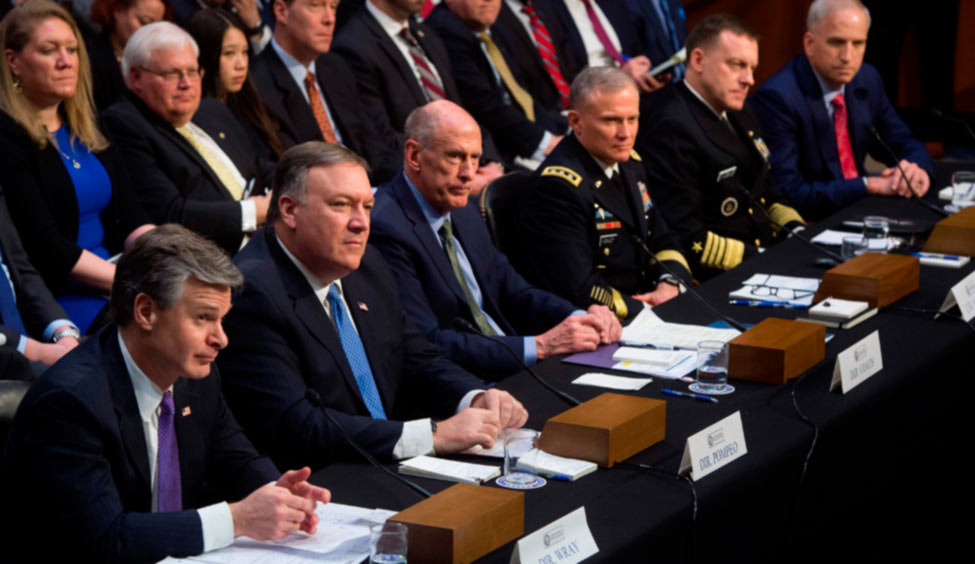US intelligence agencies told the Senate Intelligence Committee (SIC) that they have enough evidence of Russia trying to influence the mid-term elections due in November. "We have seen Russian activity and intentions to have an impact on the next election cycle," Central Intelligence Agency (CIA) Director Mike Pompeo told the SIC hearing on worldwide threats.
The heads of the CIA, Federal Bureau of Investigation, National Security Agency have unanimously agreed at the SIC hearing that the US mid-term elections are a potential target for Russians. "We expect Russia to continue using propaganda, social media, false-flag personas, sympathetic spokesmen and other means to influence, to try to build on its wide range of operations and exacerbate social and political fissures in the United States," Director of National Intelligence Dan Coats said.
US intelligence alleged that Moscow meddled in the 2016 presidential election, a claim which was denied by Russian President Vladimir Putin. US President Donald Trump described the FBI investigation on Russian propaganda against Hillary Clinton’s presidential campaign as a 'witch hunt' and praised Putin’s leadership qualities.
However, US intelligence agencies believe that Russia has been escalating cyber attack on the democratic institution of the United States and European nations. The Obama administration had alleged Kremlin's role behind the hacking of the Democratic National Committee servers in August 2016.
Why Russian intervention?
Political analysts observe that Russia's meddling in the US elections has its root in the past incidents of American interference in Russia's domestic politics. During the revolution that followed the collapse of the Soviet Union, the US was actively involved in the political processes that shaped Russian government's shift to democracy. Boris Yeltsin, the first president of the Russian Federation, had the benevolence of the Bill Clinton administration in retaining his power. Kremlin views Washington’s interference in its internal politics as a strategy to destabilise Russia and retain America's status as the lone superpower.
Putin's conservative government won the hearts of right-wing nationalists in the western world by crushing Islamic militants in the Middle East. Many conservative leaders think Russia has an important role to play in fighting Islamic extremists who threaten world peace.
Putin's political agenda is in tune with Trump's policies in many ways and, therefore, pushing a Republican victory is seen as a tactical win in pursuance of Russian agenda. Moreover, the power to influence the democratic process of the US would raise Putin's status as a global leader that would help him win next month's Russian presidential election.












